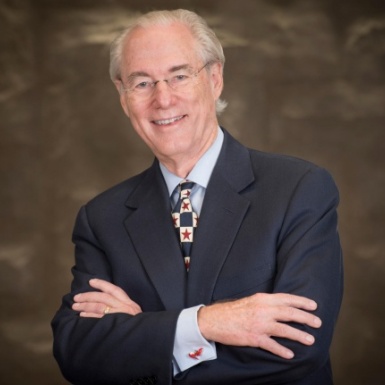Giving Patients a Much-Needed Voice in Alzheimer’s Research
Sign up and receive information on the latest news and updates.
Alzheimer’s is a disease that progresses slowly through its six stages, gradually robbing patients of their memories and abilities while placing great burdens on their caregivers. And as the global population rapidly ages and the number of those with this lengthy and cruel disease increases, the need to find and deliver Alzheimer’s treatments and cures has never been more urgent.
The question we face is: How do we direct limited resources to accelerate rapid development, testing and regulatory approval of new treatments, while making sure those treatments provide what patients and their caregivers actually want?
The answer is surprisingly simple: Ask patients and caregivers themselves. What are the daily challenges you face? What do you want most? What trade-offs are you willing to accept for an effective drug? How have your needs and perspectives changed as the disease has progressed?
By getting answers to these questions directly from patients and caregivers, we can guide research priorities, product development, trial design, regulatory approval, as well as decisions about access and reimbursement, and even the design of care and services — all with the goal of speeding the treatments that patients want.
Just as important, engaging patients and caregivers provides them a voice, empowers them to take greater control of their future, and provides hope not only to current Alzheimer’s patients, but to those at risk of developing it. This is about care, compassion and love as much as it is about cures.
As common sense as this sounds, no one had ever tried to gather this input from patients and caregivers in a systematic, scientifically rigorous fashion. As a result, there’s very little scientific evidence on patient preferences assembled in a manner needed to direct researchers, regulators and insurance companies.
Given the scale of the problem, this knowledge gap isn’t acceptable. Alzheimer’s and other forms of dementia already afflict more than 47 million people worldwide and cost the world’s economies more than $1 trillion. In the United States alone, Alzheimer’s-related long-term care costs top $277 billion, and unpaid care is valued at more than $259 billion.
Those grim figures are set to climb rapidly over the next three decades, as the 65-and-older population more than doubles and its share of the population grows to 17 percent from today’s 8 percent. As a result, the people suffering from Alzheimer’s and other forms of dementia will triple, and the already unbearable economic costs will fall on a shrinking, younger population.
This is a global time bomb that is already going off.
The lack of patient involvement changed recently with the launch of a broad-based, collaborative initiative called Alzheimer’s Disease Patient and Caregiver Engagement, or AD PACE. Its members include patient groups, industry and government agencies.
A key component of the AD PACE efforts is an 18-month study called “What Matters Most.” The first phase of this comprehensive study looks at which potential treatment outcomes matter to patients and caregivers.
The second phase will add a quantitative layer reaching potentially tens of thousands of patients and their caregivers that will enable researchers to understand how much these outcomes matter to patients and caregivers so that target outcomes can be prioritized appropriately. We expect the results to be published in a peer-reviewed journal next year.
We’re also deploying what we call the A-LIST, a first-of-its-kind online community of those living with Alzheimer’s and other forms of dementia, care partners and those at risk of the disease. Already more than 6,000 strong and growing, this panel consists of people who are ready and willing to participate in preference studies through the National Alzheimer’s & Dementia Patient & Caregiver-Powered Research Network, in clinical trials, and in technology testing. This group will provide an authoritative patient voice to inform product and clinical trial design, regulatory submissions, as well as coverage and reimbursement decisions.
AD PACE is also creating a data commons so that insights on patient and caregiver preferences — all anonymized and held to strict privacy standards — can be made widely available. Additionally, AD PACE will conduct an analysis to determine what tools and outcome measures must be added to the current repertoire of research and development resources to address the new needs identified through the “What Matters Most” study.
“AD PACE will influence the Alzheimer’s landscape by enabling all of us who are working to improve the lives of those affected by Alzheimer’s disease to better define the goals of our interventions so that we can provide targeted solutions to groups of patients and caregivers based on their preferences,” said Ann Hartry, vice president of health economics and outcomes research at Lundbeck.
The enthusiastic support of this patient-focused effort from industry, government and advocacy groups is heartening. It shows that they all understand the pressing need for Alzheimer’s treatments and the profound costs of failure.
This is a sea of change in how the scientific community and those living with a disease can work together to address an urgent problem.
Listening to patients will not only help direct research to where it’s most needed. We truly believe that when the community hears directly from the broad Alzheimer’s patient community more about its struggles and challenges, scientists, researchers, regulators and advocates will target and tailor innovative medicines more precisely to the needs of patients.
